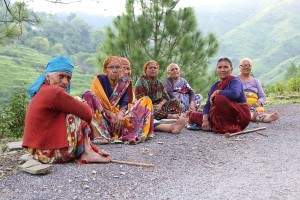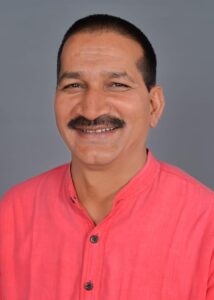
State File: Uttarakhand
 By Kishore Upadhyay*
By Kishore Upadhyay*
Dehradun: As it is, I have been working on ground level issues for more than two decades and was associated with the anti-liquor movement, Tehri rehabilitation movement, Save Ganges Movement, Save Himalaya movement and Forest Rights Movement.
However, I am writing here to put forth some important points based on my experience of working on state-level issues for the last five years.
The two key points that I would like to highlight and what are required for Uttarakhand are as follows:
1. Implementation of The Forests Rights Act 2006
According to The Forests Rights Act 2006, the people of Uttarakhand will be given their ancestral rights, including water, forest and land. Uttarakhand is a border state adjoining China. Our forests have been snatched and injustice has been done with the people of the state. We are living on only 3% land – the remaining is forest. We demand that the Forests Rights Act 2006 is implemented, and our rights are compensated in the form of:
a. Skill-based government job for one member of each family
b. Reservation in central government services
c. Free electricity, water and cooking gas
d. Right of local communities on medicinal herbs
e. In case of damage caused by wild animals, permanent government job for one member of the family and compensation of Rs 50,00,000 on loss of life; and compensation of Rs 5,000 per nali on loss of crop
f. Wood for construction of a housing unit
g. Free sand, gravel and stone
h. Free education and medicine
i. Declaration of Uttarakhandis as OBC
j. Formation of land law that includes forests and other land
k. Immediate land consolidation
Further, Uttarakhand fulfils all points of the 27% reservation under Mandal Commission and so we should be included in the central government’s categories of reservation.
2. Declaration of Uttarakhandis as OBC
Page 52 of the Mandal Commission Report says that those race or classes in which 25% people never received any education or 25% did not complete their education or 25% people have only passed 10th grade, such race or communities should be included in the list of OBCs. Even today the hilly and rural areas of Uttarakhand fulfil these criteria.
This report also includes four economic criteria:
- When the family wealth of 25% people is less than the state’s average, 1 National Commission for Backward Classes (www.ncbc.nic.in)
- When 50% people have to cover a distance of at least half a kilometer to access drinking water
- When the domestic debt of 25% people is more than the state’s average
- When more than 25% people live in mud houses
Since no survey has been done on these four criteria, no indicators/statistics are available for these. Although, according to the report developed by G.B. Pant National Institute of Himalayan Environment & Sustainable Development – Almora in 2018 in collaboration with the United Nations Development Programme, more than two-thirds of villages in Uttarakhand do not have adequate supply of water. Out of the state’s total villages (15,165), approximately 20% face some water-related issues.
Given this background it becomes imperative that the State Legislative Assembly passes the resolution to constitutionally declare all communities of Uttarakhand as OBC, so that people of Uttarakhand, especially those living in hilly regions get their constitutional rights and it is ensured that people of Uttarakhand can exercise their constitutional right of being included in the category of 27% reservation for central government jobs.
The Legislative Assembly should direct the state government to conduct a comprehensive survey based on the Mandal Commission criteria. Since the National Backward Classes Commission enjoys a constitutional status, therefore the state government may request the Central Government.
*The writer is an environmentalist and a former President of Uttarakhand Pradesh Congress Committee. The views expressed are personal.





